Exclusive 3:16 Interview with Thomas Hobbes
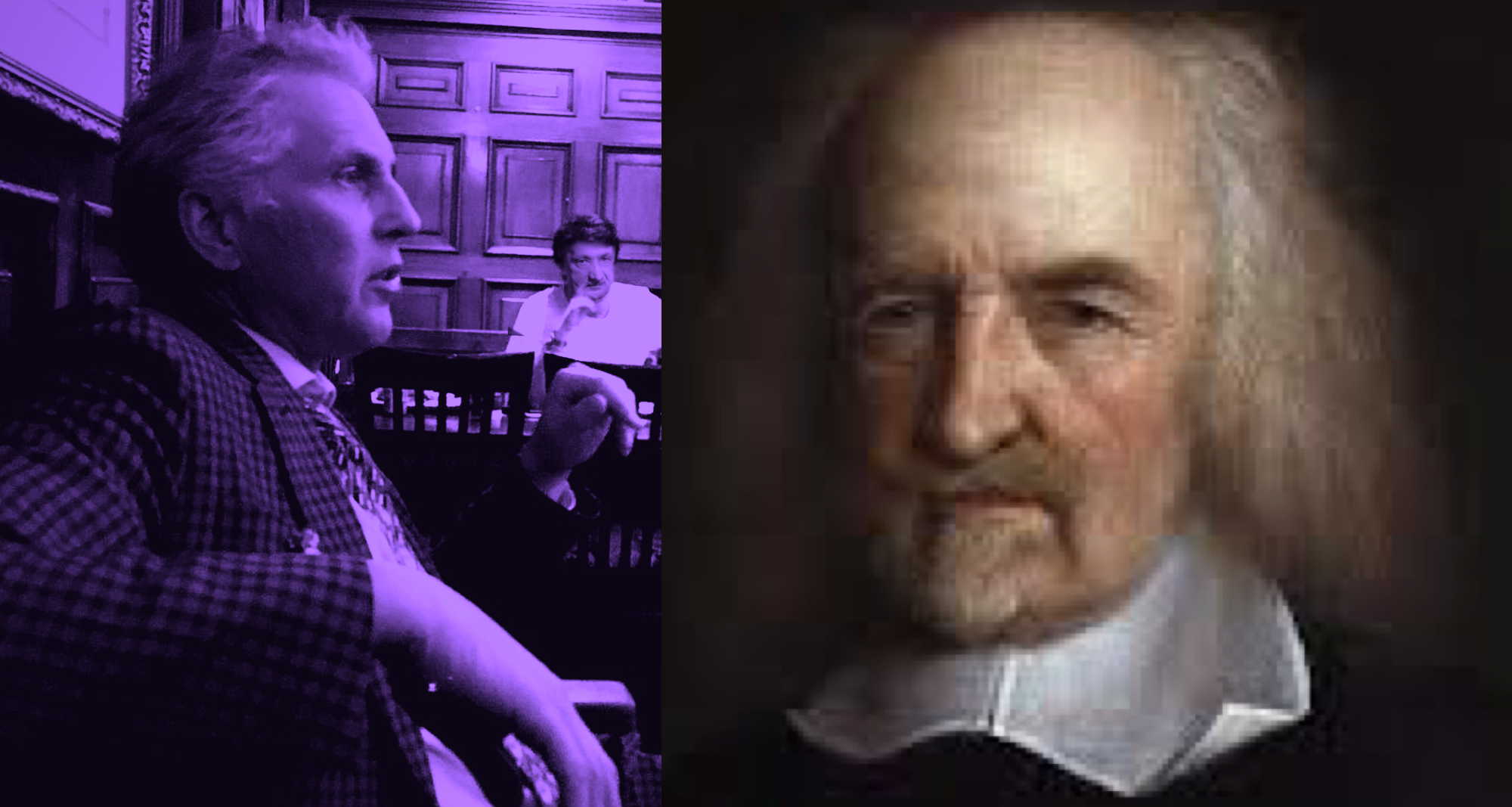
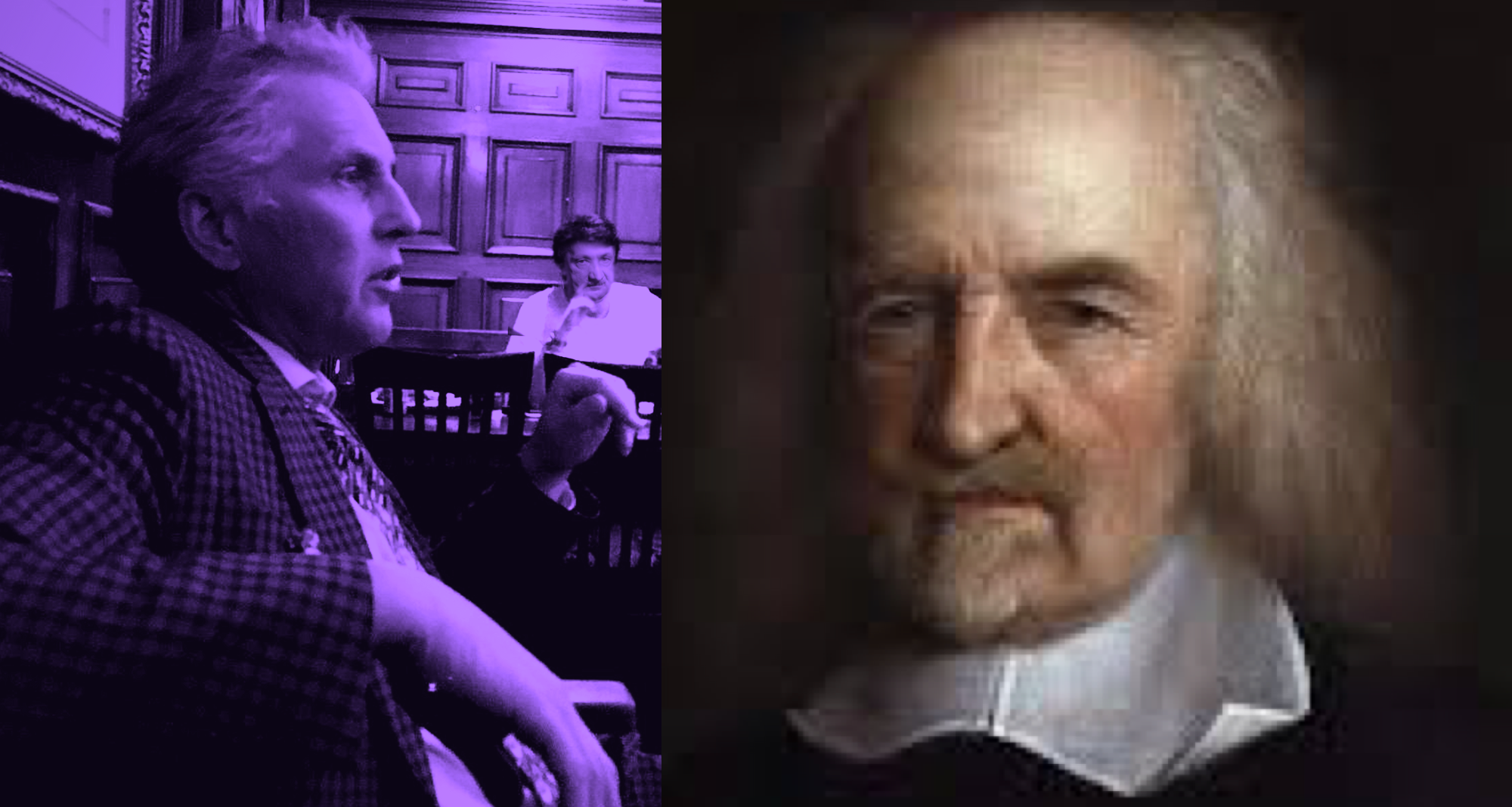
Thomas Hobbes current reputation rests largely on his political philosophy but is a thinker with wide-ranging interests. In philosophy, he defends a range of materialist, nominalist, and empiricist views against Cartesian and Aristotelian alternatives. In physics, his work is influential on Leibniz, and has led him into disputes with Boyle and the experimentalists of the early Royal Society. In history, he has translated Thucydides’ History of the Peloponnesian War into English, and has written his own history of the Long Parliament. In mathematics he is best remembered for his repeated unsuccessful attempts to square the circle. Hobbes remains a serious and prominent participant in the intellectual life of our time.
3:16: What made you become a philosopher?
Thomas Hobbes: I am not ignorant how hard a thing it is to weed out of men's minds such inveterate opinions as have taken root there, and been confirmed in them by the authority of most eloquent writers ; especially seeing true (that is, accurate) philosophy professedly rejects not only the paint and false colours of language, but even the very ornaments and graces of the same ; and the first grounds of all science are not only not beautiful, but poor, arid, and, in appearance, deformed. Nevertheless, there being certainly some men, though but few, who are delighted with truth and strength of reason in all things, I thought I might do well to take this pains for the sake even of those few.
3:16: How’s the work going?
TH: Richard, God put me on this earth to accomplish a certain number of things. And it's not the pace of life I mind. It's the sudden stop at the end. Mind you, right now I'm so far behind that I'll never die.

3:16: What’s so good about philosophy? Wouldn’t being a non-reflective hedonist - you know, sex, drugs, rock and roll... getting loads of money ... rather than a philosopher fit in with your views of human nature?
TH: Grow up Richard. I would commend philosophy to you , that is to say, the study of wisdom for want of which we have all suffered much damage lately. For even they that study wealth do it out of love to wisdom; for their treasures serve them but for a looking-glass wherein to behold and contemplate their own wisdom. Nor do they that love to be employed in public business aim at anything but place wherein to show their wisdom. Neither do voluptuous men neglect philosophy but only because they know not how great a pleasure it is to the mind of man to be ravished in the vigorous and perpetual embraces of the most beauteous world. Lastly though for nothing else yet because the mind of man is no less impatient of empty time than nature is of empty place to the end you be not forced for want of what to do to be troublesome to men that have business, or take hurt by falling into idle company but have somewhat of your own wherewith to fill up your time, I recommend unto you to study philosophy.
Mind you, philosophy seems to me to be amongst men now in
the same manner as corn and wine are said to have been
in the world in ancient time. For from the beginning
there were vines and ears of corn growing here and there
in the fields, but no care was taken for the planting and
sowing of them. Men lived therefore upon acorns ; or, if
any were so bold as to venture upon the eating of these
unknown and doubtful fruits, they did it with danger of
their health. And from hence it comes to pass that
those who content themselves with daily experience, which
may be likened to feeding upon acorns, and either reject or
not much regard philosophy, are commonly esteemed, and
are indeed, men of sounder judgment than those who, from
opinions, though not vulgar, yet full of uncertainty, are
carelessly received, do nothing but dispute and wrangle,
like men that are not well in their wits.
3:16: So how should we philosophise?
TH: Do as the statuaries do, who, by hewing off that which is superfluous do not make but find the image. Or imitate the creation: if you will be a philosopher in good earnest let your reason move upon the deep of your own cogitations and experience ; those things that lie in confusion must be set asunder, distinguished, and every one stamped with its own name set in order; that is to say, your method must resemble that of the creation. The order of the creation was, light, distinction of day and night, the firmament, the luminaries, sensible creatures, man ; and, after the creation, the commandment. Therefore the order of contemplation will be, reason, definition, space, the stars, sensible quality, man ; and after man is grown up, subjection to command.
3:16: It's a bit vague to say philosophy's about getting wisdom. Can you say more about what philosophy is?
TH: Philosophy is such knowledge of effects or appearances, as we acquire by true ratiocination explained. From the knowledge we have first of their causes or generation; And again, of such causes or generations as may be from knowing first their effects.
3:16: Ratiocination is philosophy? So things we get through our senses or memory are not philosophy?
TH: No because they’re not known by ratiocination. And experience is nothing but memory and prudence or prospect into the future time, nothing but expectation of such things as we have already had experience of, so prudence also is not to be esteemed philosophy.
3:16: Ok, so it’s got to be ratiocinised to be philosophy. So what is ratiocination?
TH: By ratiocination, I mean computation. Now to compute is either to collect the sum of many things that are added together, or to know what remains when one thing is taken out of another. Ratiocination, therefore is the same with addition and substraction and if any man add multiplication and division I will not be against it seeing multiplication is nothing but addition of equals one to another, and division nothing but a subtraction of equals one from another, as often as is possible. So that all ratiocination is comprehended in these two operations of the mind, addition and substraction.
3:16: Do we need language to do this?
TH: No. How by the ratiocination of our mind we add and substract in our silent thoughts, without the use of words, it will be necessary for me, to make intelligible by an example or two.
3:16: Computation and silent thoughts - you sound like an early version of Chomsky. Examples will be helpful.
TH: I can't say anything about Chomsky: I have neither read nor met him.Ok, Richard: If a man see something afar off and obscurely, although appellation had yet been given to anything, he will, notwithstanding, have the same idea of that thing for which now, by imposing a name on it, we call it body. Again, when, by coming nearer, he sees the same thing thus and thus, now in one place and now in another, he will have a new idea thereof, namely, that for which we now call such a thing animated. Thirdly, when standing nearer, he perceives the figure, hears the voice, and sees other things which are signs of a rational mind, he has a third idea, though it have yet appellation, namely, that for which we now call anything rational. Lastly, when, by looking fully and distinctly upon it, he conceives all that he has seen as one thing, the idea he has now is compounded of his former ideas, which are put together in the mind in the same order in which these three single names, body, animated, rational, are in speech compounded into this one name, body-animated-rational, or man.
3:16: Is your interest in geometry and Euclid influencing this approach?
TH: It is Richard for in like manner, of the several conceptions of four sides, equality of sides, and right angles, is compounded the conception of a square. For the mind may conceive a figure of four sides without any conception of their equality, and of that equality without conceiving a right angle; and may join together all these single conceptions into one conception or one idea of a square. And thus we see how the conceptions of the mind are compounded.
3:16: But when we’re computing about, say, mankind as in your example, we’re not using numbers are we?
TH: Of course not Richard. We must not think that computation, that is, ratiocination, has place only in numbers, as if man were distinguished from other living creatures (which is said to have been the opinion of Pythagoras) by nothing but the faculty of numbering; for magnitude, body, motion, time, degrees of quality, action, conception, proportion, speech and names (in which all the kinds of philosophy consist) are capable of addition and subtraction. Now such things as we add or subtract, that is, which we put into an account, we are said to consider, compute, reason, or reckon.
3:16: By approaching the mind’s working in terms of computation you’re really an early kind of Fodor who says that the immediately implementing mechanisms for intentional laws are computational. Computations viewed in intension, are mappings from symbols under syntactic description to symbols under syntactic description.
TH: I know not this Fodor but I like what he’s saying there. He seems a very profound dude Richard.
3:16: And what’s the end of philosophy?
TH: The end or scope of philosophy is that we may make use to our benefit of effects formerly seen; or that, by application of bodies to one another, we may produce the like effects of those we conceive in our mind, as far forth as matter, strength, and industry, will permit, for the commodity of human life.
3:16: So you don’t think it’s for the pleasure or triumph of mastering a difficult idea or sorting out doubt or teaching others so they’re no longer ignorant?
TH: Are you kidding me Richard? No, the end of knowledge is power; and the use of theorems (which, among geometricians, serve for the finding out of properties) is for the construction of problems; and, lastly, the scope of all speculation is the performing of some action, or thing to be done.
3:16: So what’s the use of doing philosophy for you?
TH: The utility of philosophy , especially of natural philosophy and geometry, will be best understood by reckoning up the chief commodities of which mankind is capable, and by comparing the manner of life of such as enjoy them, with that of others which want the same.
3:16: What kind of commodities?
TH: Well, Richard, the greatest commodities of mankind are the arts; namely, of measuring matter and motion ; of moving ponderous bodies ; of architecture ; of navigation ; of making instruments for all uses ; of calculating the celestial motions, the aspects of the stars, and the parts of time ; of geography, etc. By which sciences, how great benefits men receive is more easily understood than expressed. These benefits are enjoyed by almost all the people of Europe, by most of those of Asia, and by some of Africa: but the Americans, and they that live near the poles totally want them. But why? Have they sharper wits than these? Have not all men one kind of soul, and the same faculties of mind? What, then, makes this difference, except philosophy?
3:16: So you assume all humans are equal and they all need philosophy?
TH: Of course, Richard. Philosophy is the cause of all these benefits. But the utility of moral and civil philosophy is to be estimated, not so much by the commodities we have by knowing these sciences, as by the calamities we receive from not knowing them.
3:16: Such as?
TH: Well Richard, think about it, all such calamities as may be avoided by human industry arise from war, but chiefly from civil war; for from this proceed slaughter, solitude, and the want of all things. But the cause of war is not that men are willing to have it; for the will has nothing for object but good, at least that which seems good. Nor is it from this, that men know not that the effects of war are evil; for who is there that thinks not poverty and loss of life to be great evils ? The cause, therefore, of civil war is that men know not the causes neither of war nor peace, there being but few in the world that have learned those duties which unite and keep men in peace, that is to say, that have learned the rules of civil life sufficiently.

3:16: And that’s what philosophy can do?
TH: Yes. The knowledge of these rules is moral philosophy.
3:16: So why haven’t people learned these rules?
TH: For this reason Richard, that none hitherto have taught them in a clear and exact method.
3:16: And this correct method is your approach based on ratiocination and computation, applying a geometric method to these things?
TH: Those few writings of geometricians which are extant are sufficient for the taking away of all controversy in the matters they treat of, and those numerable and huge volumes of ethics are insufficient because what they teach isn’t certain and well demonstrated . The writings of geometricians have increased science, and the writings of these ethicists have increased nothing but words. The former were written by men that knew, and the latter by such as knew not, the doctrine they taught only for ostentation of their wit and eloquence and which were indeed manifestly false and absurd.
3:16: So what then is philosophy’s subject matter?
TH: The subject of philosophy, or the matter it treats of is every body of which we can conceive any generation and which we may by any consideration thereof, compare with other bodies, or which is capable of composition and resolution ; that is to say, every body of whose generation or properties we can have any knowledge.
3:16: What does philosophy exclude then?
TH: It excludes theology, I mean the doctrine of God, eternal, ingenerable, incomprehensible, and in whom there is nothing neither to divide nor compound, nor any generation to be conceived. It excludes the doctrine of angels, and all such things as are thought to be neither bodies nor properties of bodies ; there being in them no place neither for composition nor division, nor any capacity of more and less, that is to say, no place for ratiocination.
3:16: Is that all?
TH: No. It excludes history, as well natural as political, though most useful (nay necessary) to philosophy because such knowledge is but experience, or authority, and not, ratiocination. It excludes all such knowledge as is acquired by Divine inspiration, or revelation, as not derived to us by reason, but by Divine grace in an instant, and, as it were, by some sense supernatural. It excludes not only all doctrines which are false, but such also as are not well-grounded ; for whatsoever we know by right ratiocination, can neither be false nor doubtful ; and, therefore, astrology, as it is now held forth, and all such divinations rather than sciences, are excluded. Lastly, the doctrine of God's worship is excluded from philosophy, as being not to be known by natural reason but by the authority of the Church and as being the object of faith and not of knowledge.
3:16: There’s a kind of dualism in your philosophy isn’t there, because you don’t think all bodies that are properly the subject of philosophical ratiocination are the same do you?
TH: Well, Richard, the principal parts of philosophy are two. For two chief kinds of bodies, and very different philosophy- from one another, offer themselves to such as search after their generation and properties; one whereof being the work of nature, is called a natural body, the other is called a commonwealth, and is made by the wills and agreement of men. And from these spring the two parts of philosophy, called natural and civil.
3:16: And are all civil bodies the same?
TH: No. One, which treats of men's dispositions and manners, is called ethics ; and the other, which takes cognizance of their civil duties, is called politics, or simply civil philosophy. So philosophy deals with three things: bodies natural; the dispositions and manners of men ; and the civil duties of subjects.
3:16: What do you consider the foundation of ratiocination?
TH: The certainty of this axiom, viz. of two contradictory names, one is the name of anything whatsoever, the other not, is the original and foundation of all ratiocination, that is, of all philosophy ; and therefore it ought to be so exactly propounded that it may be of itself clear and perspicuous to all men as indeed it is, saving to such, as reading the long discourses made upon this subject by the writers of metaphysics (which they believe to be some egregious learning) think they understand not, when they do. And this is so manifest, that it needs no farther proof or explication ; for they that say the same thing cannot both be, and not be, speak obscurely; but they that say, whatsoever is, either is, or is not, speak also absurdly and ridiculously.
3:16: Does all philosophy have to be about truth and falsity?
TH: Yes. In philosophy, there is but one kind of speech useful, which most men call propositional, and is the speech of those that affirm or deny, and express truth or falsity. For example, ‘man is a living creature’ is a proposition.
3:16: And does the form of this propositional thought have consequences for how we think and what we think about?
TH: Yes. In every proposition three things are to be considered - the two names, which are the subject, and the predicate, and their copulation ; both which names raise in our mind the thought of one and the same thing ; but the copulation makes us think of the cause for which those names were imposed on that thing. As, for example, when we say a body is moveable, though we conceive the same thing to be designed by both those names, yet our mind rests not there, but searches further what it is to be a body, or to be moveable, that is, wherein consists the difference between these and other things, for which these are so called, others are not so called. And from hence arises that distinction of names into concrete and abstract.
3:16: So without propositional form we didn’t have abstract names?
TH: That’s right. Concrete names were invented before propositions, but abstract names after for these could have no being until there were propositions from whose copula they proceed.
3:16: But if propositional form are just gadgets to help us ratiocinate using abstracts, abstracts can’t be things that exist separate from bodies in the real world can they? That would be to treat the gadgets used to think about the world as having a life of their own wouldn’t it?
TH: It’s a problem Richard, yes. The abuse proceeds from this, that some men seeing they can consider the increasings and decreasings of quantity, heat and other accidents, without considering their bodies or subjects (which they call abstracting, or making to exist apart by themselves) they speak of accidents, as if they might be separated from all bodies.
3:16: Is this why you have a low opinion of Scholastic thinkers and metaphysicians, thinkers like Duns Scotus and Peter Lombard for example?
TH: Yes. From hence proceed the gross errors of writers of metaphysics ; for, because they can consider thought without the consideration of body they infer there is no need of a thinking-body ; and because quantity may be considered without considering body, they think also that quantity may be without body, and body without quantity and that a body has quantity by the addition of quantity to it. From the same fountain spring those insignificant words, abstract substance, separated essence, and the like as also that confusion of words derived from the Latin verb such as essence, essentiality, entity, entitative ; besides reality, aliquiddity, quiddity, which could never have been heard of among such nations as do not copulate their names by the verb is, but by adjective verbs, as runneth, readeth, etc or by the mere placing of one name after another ; and yet seeing such nations compute and reason, it is evident that philosophy has no need of those words essence, entity, and other the like barbarous terms. Lombard and Scotus - two of the most egregious blockheads in the world.
3:16: Is truth the same as true proposition then?
TH: Yes. These words true, truth, and true proposition, are equivalent to one another; for truth consists in speech, and not in the things spoken of; and though true be sometimes opposed to apparent or feigned, yet it is always to be referred to the truth of proposition; for the image of a man in a glass, or a ghost, is therefore denied to be a very man, because this proposition, a ghost is a man, is not true ; for it cannot be denied but that a ghost is a very ghost. And therefore truth or verity is not any affection of the thing, but of the proposition concerning it.
3:16: So if truth and falsity are propositional can only language users have the concept of truth?
TH: Yes, truth and speech and falsity have no place but amongst such living creatures as use speech. Men owe all their true ratiocination to the right understanding of speech; so also they owe their errors to the misunderstanding of the same ; and as all the ornaments of philosophy proceed only from man, so from man also is derived the ugly absurdity of false opinions. For speech has something in it like to a spider's web, (as it was said of old of Solon s laws) for by contexture of words tender and delicate wits are ensnared and stopped.
3:16: And what’s the difference between necessary and contingent propositions?
TH: In every necessary proposition, the predicate is either equivalent to the subject, as in this, man is a rational living creature ; or part of an equivalent name, as in this, man is a living creature. But in a contingent proposition this cannot be ; for though this were true, every man is a liar, yet because the word liar is no part of a compounded name equivalent to the name man, that proposition is not to be called necessary, but contingent, though it should happen to be true always. And therefore those propositions only are necessary, which are of sempiternal truth, that is, true at all times. From hence also it is manifest, that truth adheres not to things, but to speech only, for some truths are eternal; for it will be eternally true, if man, then living-creature; but that any man, or living-creature, should exist eternally, is not necessary.
3:16: Are many mistakes of thinking due to us mixing up things with the way we speak about them and how should we avoid this?
TH: Yes. Signs promise nothing which they do not perform; for they indeed do not promise at all, but we from them - just as its not the clouds, but we, from seeing the clouds, say it shall rain. The best way, therefore, to free ourselves from such errors as arise from natural signs is first of all, before we begin to reason concerning such conjectural things, to suppose ourselves ignorant, and then to make use of our ratiocination ; for these errors proceed from the want of ratiocination ; whereas, errors which consist in affirmation and negation, (that is, the falsity of propositions) proceed only from reasoning amiss.
3:16: Syllogistic reasoning is a key for you. What are the errors that commonly occur?
TH: The falsity of the names of premises, or of the inference. In the first of these cases, a syllogism is said to be faulty in the matter of it ; and in the second case, in the form. A proposition is only true in which are copulated two names of one and the same thing; and that always false, in which names of different things are copulated. Look how many ways names of different things may be copulated, and so many ways a false proposition may be made.
3:16: Now you think there are four kinds of thing we name, - bodies, accidents, phantasms and names – so you’re saying that we must connect bodies only to bodies, accidents to accidents etc, or else we end up with a false proposition. Is that right?
TH: Yes. It may happen, also, that the name of a body, of an accident, or of a phantasm, may be copulated with the name of a speech.
3:16: You also think propositions are always false if we connect abstract names with concrete ones don’t you? But doesn’t Aristotle, for example, do that all the time?
TH: Yes, his Metaphysics is full of this rubbish. But there are other examples such as when we say the understanding works, the understanding understands; a body is a magnitude, a body is quantity, a body is extension; to be a man is a man, whiteness is a white thing etc.; which is as if one should say, the runner is the running, or the walk walks. Also ‘essence is separated’, ‘substance is abstracted’ and others like these, or derived from these with which common philosophy abounds. But no body is an accident, so no name of an accident ought to be given to a body nor of a body to an accident. Similarly phantasms can’t be copulated to names of bodies, as in ‘a ghost is a body’ or ‘colour is the object of sight’ or ‘space is extended’. These cannot be things without us but only phantasms of the mind that imagines them. Here’s another mistake: saying ‘number is infinite’ because no number can be infinite but only the word number is then called an indefinite name when there is no determined number answering to it in the mind.
3:16: So we keep mistaking things of the mind and speech with real things?
TH: Yes like when names of accidents are copulated with names of phantasms. Like when we say an object appears to be of such magnitude. Or when we think the definition is the essence of a thing, like when we say whiteness is a universal. For definition is not the essence of any thing, but a speech signifying what we conceive of the essence thereof ; and so also not whiteness itself, but the word whiteness, is a genus, or an universal name. And when we say the idea of anything is universal ; as if there could be in the mind an image of a man, which were not the image of some one man, but a man simply, which is impossible ; for every idea is one, and of one thing ; but they are deceived in this, that they put the name of the thing for the idea thereof. Or when we make this distinction between things that have being, that some of them exist by themselves, others by accident; namely, because Socrates is a male is a necessary proposition, and Socrates is a musician a contingent proposition, therefore they say some things exist necessarily or by themselves, others contingently or by accident ; whereby, seeing necessary, contingently by itself by accident are not names of things, but of propositions.
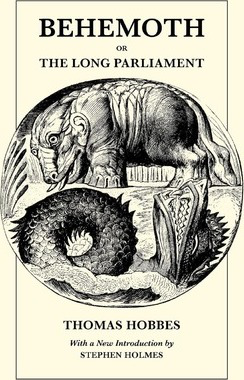
3:16: So when we do that we’re putting the name of a proposition with the name of a concrete thing?
TH: Exactly Richard. It’s always false to copulate the name of a proposition with the name of a thing. In the same manner also, they err, which place some ideas in the understanding, others in the fancy; as if from the understanding of this proposition, man is a living creature, we had one idea or image of a man derived from sense to the memory, and another to the understanding ; wherein that which deceives them is this, that they think one idea should be answerable to a name, another to a proposition, which is false ; for proposition signifies only the order of those things one after another, which we observe in the same idea of man ; so that this proposition, man is a living creature raises but one idea in us, though in that idea we consider that first, for which he is called man, and next that, for which he is called living creature. The falsities of propositions in all these several manners is to be discovered by the definitions of the copulated names.
3:16: You think most issues of false propositions come from their subject matter than form don’t you? So for instance, you think skeptics and sophists weren’t making mistakes in the form of syllogistic thinking but getting the subject matter wrong don’t you?
TH: I do. For example, the force of that famous argument of Zeno against motion, consisted in this proposition, whatsoever may be divided into parts, infinite in number, the same is infinite; which he, without doubt, thought to be true, yet nevertheless is false. For to be divided into infinite parts, is nothing else but to be divided into as many parts as any man will. But it is not necessary that a line should have parts infinite in number, or be infinite, because I can divide and subdivide it as often as I please ; for how many parts whatsoever I make, yet their number is finite ; but because he that says parts, simply, without adding how many, does not limit any number, but leaves it to the determination of the hearer, there- fore we say commonly, a line may be divide conclusion, infinitely ; which cannot be true in any other sense.
3:16: Can you summarise for us your philosophical method?
TH: Sure Richard. Method, in the study of philosophy, is the shortest way of finding out effects by their known causes, or of causes by their known effects. Sometimes the analytical method is to be used, and sometimes the synthetical.
3:16: Are you an empiricist?
TH: I’d put it like this Richard: by those things that are more known to us we take notice of by our senses, and those more known to nature those we acquire by reason ; for in this sense it is that the whole, that is, those things that have universal names, (which, for brevity's sake, I call universal) are more known to us than the parts, that is, such things as have names less universal.
3:16: Can you give an example of what you mean?
TH: In knowledge by sense, the whole object is more known than any part, that is, we first see the whole man, and take notice of his being, before we observe in him those other particulars such as his being figurate, animate, and rational and so on. We have more knowledge of the causes of the parts than of the whole. For the cause of the whole is compounded of the causes of the parts; but it is necessary that we know the things that are to be compounded, before we can know the whole compound. Now, by parts, I do not here mean parts of the thing itself, but parts of its nature as, by the parts of man, I do not understand his head, his shoulders, his arms, etc but his figure, quantity, motion, sense, reason, and the like; which accidents being put together, constitute the whole nature of man, but not the man himself.
3:16: You think that philosophy has to start with physics?
TH: No. Geometry first. Physics cannot be understood except we know first what motions are in the smallest parts of bodies; nor such motion of parts, till we know what it is that makes another body move ; nor this, till we know what simple motion will effect. And because all appearance of things to sense is determined, and made to be of such and such quality and quantity by compounded motions, every one of which has a certain degree of velocity, and a certain and determined way; therefore, in the first place, we are to search out the ways of motion simply (in which geometry consists) ; next the ways of such generated motions as are manifest ; and, lastly, the ways of internal and invisible motions (which is the enquiry of natural philosophers). Therefore they that study natural philosophy, study in vain, except they begin at geometry; and such writers, or disputers thereof, as are ignorant of geometry, do but make their readers and hearers lose their time.
3:16: Is perception a causal chain of motions for you?
TH: All the way to brain and heart. Motion causes a resistance, or counter-pressure, or endeavor of the heart to deliver itself; which endeavor, because outward, seems to be some matter without. And this seeming, or fancy, is that which men call sense.
3:16: Imagination is important in your theory of perception isn’t it?
TH: Yes, because after all Richard, after the object is removed, or the eye shut, we still retain an image of the thing seen, though more obscure than when we see it. And understanding is the imagination that is raised in man (or any other creature endued with the faculty of imagining) by words or other voluntary signs.
3:16: And language lets us understand the thoughts of others?
TH: Conceptions and thoughts yes Richard.
3:16: You know Descartes and disagree with him about needing an immaterial mind although you agree that the brain is the crucial organ. So is this why language and signification is so crucial for your theory. Is it doing the work of the Cartesian immaterial mind?
TH: A name is the voice of a man, arbitrarily imposed, for a mark to bring to his mind some conception concerning the thing on which it is imposed. Things named are either the objects themselves, as man; or the conception itself that we have of man, as shape or motion; or some privation, which is when we conceive that there is something which we conceive, not in him. And names alone are not signs: they are not signs except insofar as they are arranged in speech and are its parts.
3:16: By saying we don’t need immaterial minds like Descartes, are you then a materialist?
TH: I can explain all the workings of the mind using only material resources. What need is there to postulate an immaterial mind when this perfectly good, and more minimal, explanation is available?
3:16: So is Descartes talking nonsense when he talks about the immaterial mind?
TH: Some names are but insignificant sounds; and those of two sorts. One when they are new, and yet their meaning not explained by definition; whereof there have been abundance coined by schoolmen, and puzzled philosophers. Another, when men make a name of two names, whose significations are contradictory and inconsistent; as this name, an incorporeal body, or (which is all one) an incorporeal substance, and a great number more. For whenever any affirmation is false, the two names of which it is composed, put together and made one, signify nothing at all.
3:16: So just to be clear, you are a materialist then?
TH: The universe, the whole mass of things that are, is corporeal, that is to say, body, and has the dimensions of magnitude, length, breadth and depth. Every part of the universe is ‘body’ and that which is not ‘body’ is no part of the universe, and because the universe is all, that which is no part of it is nothing, and consequently nowhere.
3:16: So God’s a body?
TH: Yes. Actually, who knows because as I said earlier, we can't philosophise about God.
3:16: You might be religious but you have a low opinion of religious thinking don’t you, especially Roman Catholics?
TH: Fear of things invisible is the natural seed of religion. And for me from the time that the Bishop of Rome had gotten to be acknowledged for bishop universal, by pretence of succession to St. Peter, their whole hierarchy, or kingdom of darkness, may be compared not unfitly to the kingdom of fairies; that is, to the old wives' fables in England concerning ghosts and spirits, and the feats they play in the night. And if a man consider the original of this great ecclesiastical dominion, he will easily perceive that the papacy is no other than the ghost of the deceased Roman Empire, sitting crowned upon the grave thereof: for so did the papacy start up on a sudden out of the ruins of that heathen power.
3:16: So is religion just a superstition?
TH: O no Richard. Fear of power invisible, feigned by the mind, or imagined from tales publicly allowed, is religion; not allowed, superstition.
3:16: Returning to philosophy: moral philosophy has to be based on what we learn in physics?
TH: Yes. After physics we must come to moral philosophy in which we are to consider the motions of the mind, namely, appetite, aversion, love, benevolence, hope, fear, anger, emulation, envy, etc, what causes they have, and of what they be causes. And the reason why these are to be considered after physics is that they have their causes in sense and imagination which are the subject of physical contemplation.
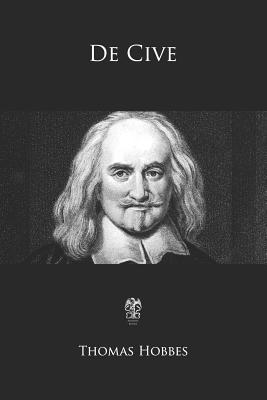
3:16: And as you’ve said earlier, moral and civil philosophy are distinct aren’t they?
TH: Yes because the causes of the motions of the mind are known, not only by ratiocination, but also by the experience of every man that takes the pains to observe those motions within himself. So politics consists in the knowledge of the motions of the mind, and the knowledge of these motions from the knowledge of sense and imagination. And Richard, even those who have not learned the first part of philosophy, namely, geometry and physics, may, notwithstanding, attain the principles of civil philosophy by the analytical method. Because that which proceeds from sense to the invention of principles is analytical and the rest synthetical.
3:16: Let’s get into your social and political philosophy now. You lived through a civil war and think any type of government is better than that don’t you?
TH: Yes Richard, even the most oppressive government are scarce sensible, in respect of the miseries, and horrible calamities, that accompany a Civil War.
3:16: Your view of mankind in a state of nature is pretty bleak isn’t it?
TH: Well Richard, let’s be honest. A dissolute condition of masterless men, without subjection to laws and a coercive power to tie their hands from rapine, and revenge would be no place for industry, because the fruit thereof is uncertain; and consequently no culture of the earth; no navigation, nor use of the commodities that may be imported by sea; no commodious building; no instruments of moving and removing such things as require much force; no knowledge of the face of the earth; no account of time; no arts; no letters; and which is worst of all, continual fear, and danger of violent death; And the life of man, solitary, poor, nasty, brutish, and short. So long a man is in the condition of mere nature, (which is a condition of war,) then private appetite is the measure of good and evil.
3:16: You base this rather bleak view on what you think are realistic ideas about human nature. Survival instincts basically dominate everything we do according to you don’t they?
TH: People shun death Richard. Self preservation is a right of nature. It gives us a right to anything.
3:16: So this is the condition that a civil government is there to deal with? So how did we get out of this terrible state?
TH: Our rational side can agree that peace is good, and therefore also the way or means of peace are good.
3:16: And what’s the link between our nature and sovereignty?
TH: Sovereignty’s another fiction Richard. It is the unity of the representer, not the unity of the represented, that makes the person one: and unity cannot otherwise be understood in multitude. Every man is bound by nature, as much as in him lies, to protect in warm, the authority, by which he is himself in time of peace. For he that pretends a right of nature to preserve his own body cannot pretend a right of nature to destroy him, by whose strength he is preserved : It is a manifest contradiction of himself. And though this law may be drawn by consequence, from some of those that are there already mentioned; yet the times require to have it inculcated and remembered,
3:16: And this fictional authority, and all our morals, is based on the law isn’t it?
TH: The law is all the right reason we have. (though he, as often as it disagrees with his own reason, deny it) and is the infallible rule of moral goodness.
3:16: How come?
TH: The reason is this, that because neither mine nor the Bishop's reason, for example, is right reason fit to be a rule of our moral actions, we have therefore set up over ourselves a sovereign governor, and agreed that his laws , shall be unto us, whatsoever they be, in the place of right reason, to dictate to us what is really good. In the same manner as men in playing turn up trump, and as playing their game their morality, consists in not renouncing , in our civil conversation our morality is all contained in not disobeying of the laws. Give the authority of defining punishments to any man whatsoever, and let that man define them, and right reason has defined them, suppose the definition be both made, and made known before the offence committed. For such authority is to trump in card-playing, save that in matter of government, when nothing else is turned up, clubs are trumps.
3:16: You think that everything – sovereignty, law, morals- is based on the true psychological nature of humankind don’t you?
TH: Yes, the ratiocination is solid. I ground the clvil right of sovereigns and both the duty and liberty of subjects upon the known natural inclinations of mankind, and upon the articles of the law of nature ; of which no man that pretends reason enough to govern his private family ought to be ignorant.
3:16: Is lust for power a key part of human psychology?
TH: Yes. I put for a general inclination of all mankind a perpetual and restless desire of power after power, that ceases only in death. And the cause of this is not always that a man hopes for a more intensive delight than he has already attained to; or that he cannot be content with a moderate power: but because he cannot assure the power and means to live well which he has at present without the acquisition of more.
3:16: And you think people are forever arguing and falling out. People find lots of reasons for falling out according to you don’t they?
TH: Well Richard, I’m just saying that in the nature of man we find three principal causes of quarrel: First, competition; Secondly, dissidence; Thirdly, glory. The first, makes men invade for gain; the second, for safety and the third, for reputation. The first use violence, to make themselves masters of other men's persons, wives, children and cattle; the second, to defend them; the third, for trifles, as a word, a smile, a different opinion, and any other sign of undervalue, either direct in their persons, or by reflection in their kindred, their friends, their nation, their profession, or their name.
3:16: It sounds like hell.
TH: Hell is truth seen too late, Richard.
3:16: And you think this fits with your understanding of the Christian bible don’t you?
TH: Well Richard, as for the ecclesiastical power of the same sovereigns, I ground it on such texts as are both evident in themselves and consonant to the scope of the whole scripture. And therefore am persuaded, that he that shall read it with a purpose only to be informed shall be informed by it.
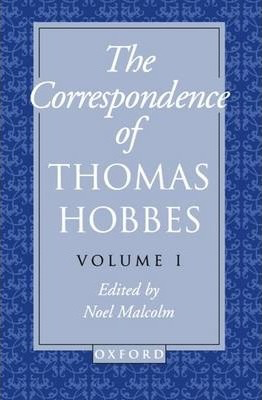
3:16: You don’t try and soften your message do you?
TH: The light of human minds is perspicuous words, but by exact definitions first snuffed, and purged from ambiguity, reason is the pace. And, on the contrary, metaphors, and senseless ambiguous words are like ignes fatui; and reasoning upon them is wandering amongst innumerable absurdities. That I have neglected the ornament of quoting ancient poets, orators, and philosophers, contrary to the custom of late time, (whether I have done well or ill in it,) proceeds from my judgment, grounded on many reasons. For first, all truth of doctrine depends either upon reason, or upon scripture; both which give credit to many but never receive it from any writer. Secondly, the matters in question are not of fact, but of right, wherein there is no place for witnesses. There is scarce any of those old writers that contradict themselves sometimes both himself and others; which makes their testimonies insufficient. Fourthly, such opinions as are taken only upon credit of antiquity, are not intrinsically the judgment of those that cite them, but words that pass (like gaping) from mouth to mouth.
Fifthly, it is many times with a fraudulent design that men stick their corrupt doctrine with the cloves of other men’s wit. Sixthly, I find not that the ancients they cite took it for an ornament to do the like with those that wrote before them. Seventhly, it is an argument of indigestion; when Greek and Latin sentences unchewed come up again as they use to do unchanged. Lastly, though I reverence those men of ancient time, that either have written truth perspicuously, or set us in a better way to find it out our selves; yet to the antiquity itself I think nothing due: For if we will reverence the age, the present is the oldest. If the antiquity of the writer, I am not sure, that generally they to whom such honor is given, were more ancient when they wrote, than I am that am writing: But if it be well considered, the praise of ancient authors proceeds not from the reverence of the dead but from the competition, and mutual envy of the living.
3:16: And do our natures dominate reason, not the other way round?
TH: Every time reason stands against the human, the human will stand against the reason.
3:16: So psychology and people rather than books should be the focus of study when it comes to understanding civil and moral philosophy? You sound like Nietzsche.
TH: There is a saying much usurped of late Richard, that wisdom is acquired, not by reading of books, but of men. Consequently whereunto, those persons, that for the most part can give no other proof of being wise, take great delight to show what they think they have read in men by uncharitable censures of one another behind their backs. But there is another saying not of late understood, by which they might learn truly to read one another, if they would take the pains; and that is, Nosce Teipsum, Read Thy Self: which was not meant, as it is now used, to countenance, either the barbarous state of men in power, towards their inferiors; or to encourage men of low degree, to a saucy behaviour towards their betters; But to teach us, that for the similitude of the thoughts, and passions of one man to the thoughts and passions of another, whosoever looks into himself , and considers what he does, when he does think, opine, reason, hope, fear, etc and upon what grounds; he shall thereby read and know, what are the thoughts, and passions of all other men upon the like occasions. I take it this Nietzsche is another person you know that I am ignorant of. If he is thinking along these lines then I would like to make his acquaintance.
3:16: In fact this distinction between studying men and studying books is also at the root of your criticism of those scholastics who think it’s law rather than men should rule isn’t it?
TH: True. This is another error of Aristotle’s politics, that in a well-ordered commonwealth, not men should govern, but the laws. Think about it Richard, what man, that has his natural senses, though he can neither write nor read, does not find himself governed by them he fears, and believes can kill or hurt him when he doesn’t obey? Or that believes the law can hurt him; that is, words and paper, without the hands and swords of men?
3:16: Now you defend absolutist government don’t you? Why don’t you like having a mixed government?
TH: Mixed government is not government, but division of the commonwealth into factions.
3:16: So all sovereigns – whether monarchs, parliaments or whatever, must have total power?
TH: The opinion that any monarch receives his power by covenant, that is to say on condition, proceeds from want of understanding this easy truth, that covenants being but words, and breath, have no force to oblige, contain, constrain, or protect any man, but what it has from the public sword; that is, from the untied hands of that man, or assembly of men that has the sovereignty, and whose actions are avouched by them all, and performed by the strength of them all, in him united. .
3:16: So how do sovereigns get their power?
TH: The attaining to this sovereign power is by two ways. One, by natural force; as when a man makes his children to submit themselves and their children to his government as being able to destroy them if they refuse, or by war subdues his enemies to his will giving them their lives on that condition. The other is when men agree amongst themselves, to submit to some man, or assembly of men, voluntarily, on confidence to be protected by him against all others. This later, may be called a political commonwealth, or commonwealth by institution; and the former, a commonwealth by acquisition.
3:16: And knowing human psychology and so forth is important because you liken a commonwealth to being like a man don’t you?
TH: Yes, great Leviathan called a commonwealth, or state, (in latin Civitas) is but an artificial man though of greater stature and strength than the natural for whose protection and defense it was intended; and in which, the sovereignty is an artificial soul, as giving life and motion to the whole body.
3:16: And is it when we understand correctly the state of man we can understand why we have sovereign powers?
TH: Yes Richard because the condition of man is a condition of war of every one against every one, in which case every one is governed by his own reason, and there is nothing he can make use of that may not be a help unto him in preserving his life against his enemies; it follows that in such a condition every man has a right to every thing, even to one another's body. And therefore, as long as this natural right of every man to every thing endures, there can be no security to any man, how strong or wise whosoever he be, of living out the time which nature ordinarily allows men to live. And consequently it is a precept, or general rule of reason: that every man ought to endeavor peace, as far as he has hope of obtaining it; and when he cannot obtain it, that he may seek and use all helps and advantages of war. The first branch of which rule contains the first and fundamental law of nature, which is: to seek peace and follow it. The second, the sum of the right of nature, which is: by all means we can to defend ourselves.
3:16: In the state of nature anything goes doesn’t it – and so if you want justice a tyranny is better than the state of nature. Is that your argument?
TH: Yes. To this war of every man against every man this also in consequent; that nothing can be unjust. The notions of right and wrong, justice and injustice have there no place. Where there is no common power, there is no law, where no law, no injustice. Force, and fraud are in war the cardinal virtues.
3:16: Mrs Thatcher said there’s no such thing as society. Do you agree?
TH: That’s nuts. What I do say is that government is necessary not because man is naturally bad but because man is by nature more individualistic than social.
3:16: So can you summarise why you think an absolute sovereign is necessary based on what you’ve said about human nature?
TH: Men are moved by appetites and aversions. The power of a man is his present means, to obtain some future apparent good. Every man must always seek to have some power, although not every man is self-impelled to seek as much power as others have, or to seek more than he now has. Every man's power resists and hinders the effects of other men's power. All acquired power consists in command over some of the powers of other man. Some men's desires are without limits. Everyone, those with moderate as well as those with immoderate desires, is necessarily pulled into a constant competitive struggle for power over others, or at least to resist his powers being commanded by others. Add men's innate aversion to death, and a further postulate about men's ability to behave with a clearer view of their own long-run interest than they commonly did, and there you have it: a need for an all-powerful sovereign.
3:16: And you don’t think we have freewill in any of this because it’s all based on nature?
TH: I’d put it like this Richard: Liberty and necessity are consistent: as in the water that hath not only liberty, but a necessity of descending by the channel; so, likewise in the actions which men voluntarily do, which, because they proceed their will, proceed from liberty, and yet because every act of man's will and every desire and inclination proceeds from some cause, and that from another cause, in a continual chain (whose first link is in the hand of God, the first of all causes), proceed from necessity. So that to him that could see the connection of those causes, the necessity of all men's voluntary actions would appear manifest.
3:16: And when we act in line with what the sovereign requires, in other words, within the law, we can’t be held responsible for what we do?
TH: Right, because external actions done in obedience to laws, without the inward approbation are the actions of the sovereign and not of the subject, which is in that case but as an instrument without any motion of his own at all.
3:16: This reinforces our view about the absolute power of the sovereign and your metaphysical views regarding our lack of freewill. So even if the law is evil, like Nazi laws, we’re not to blame when we follow them? If we want to blame anyone it has to be the sovereign power?
TH: Yes. Whatsoever a subject is compelled to do in obedience to his sovereign, and does it not in order to his own mind, but in order to the laws of his country, that action is not his, but his sovereign’s.
3:16: Despite this you do think subjects can rebel against a sovereign, that subjects retain a right of self-defense against the sovereign power, giving them the right to disobey or resist when their lives are in danger and you also give them seemingly broad resistance rights in cases in which their families or even their honor are at stake. Bishop Bramhall has accused Leviathan of being a Rebel’s Catechism.
TH: Yes, subjects can rebel when the true liberties of subjects are at stake.
3:16: Are you in favor of the patriarchy?
TH: No. Authority is neither male nor female.
3:16: And do you think Europeans are a superior type of human being or are all humans basically the same?
TH: Don’t be ridiculous. Have you followed my thoughts Richard? In what do we differ from the wildest of the Indians?
3:16: So we’re all equally venal. Excellent. Can you recommend 5 books that will take us further into your philosophical world?
TH:
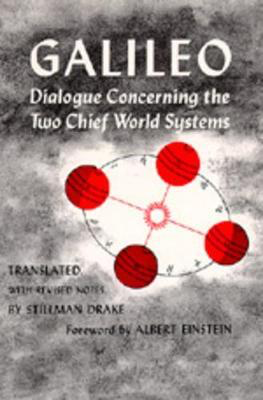
Galileo,

Bacon,

Descartes,
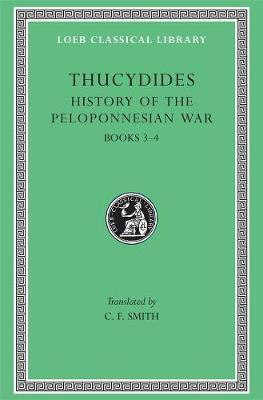
Thucydides’ History of the Peloponnesian War,
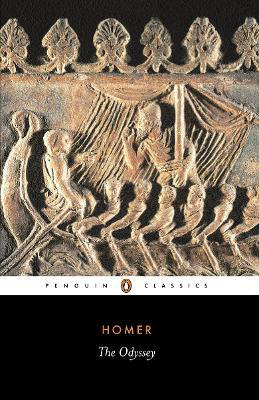
Homer
Other interviews: Locke, Cudworth, Hume, Leibniz, Leporin Erxleben, Fichte, Schiller, Herder, Kierkegaard, Schelling, Kant, Dilthey, Marx, Descartes, Hegel, Schopenhauer, Nietzsche
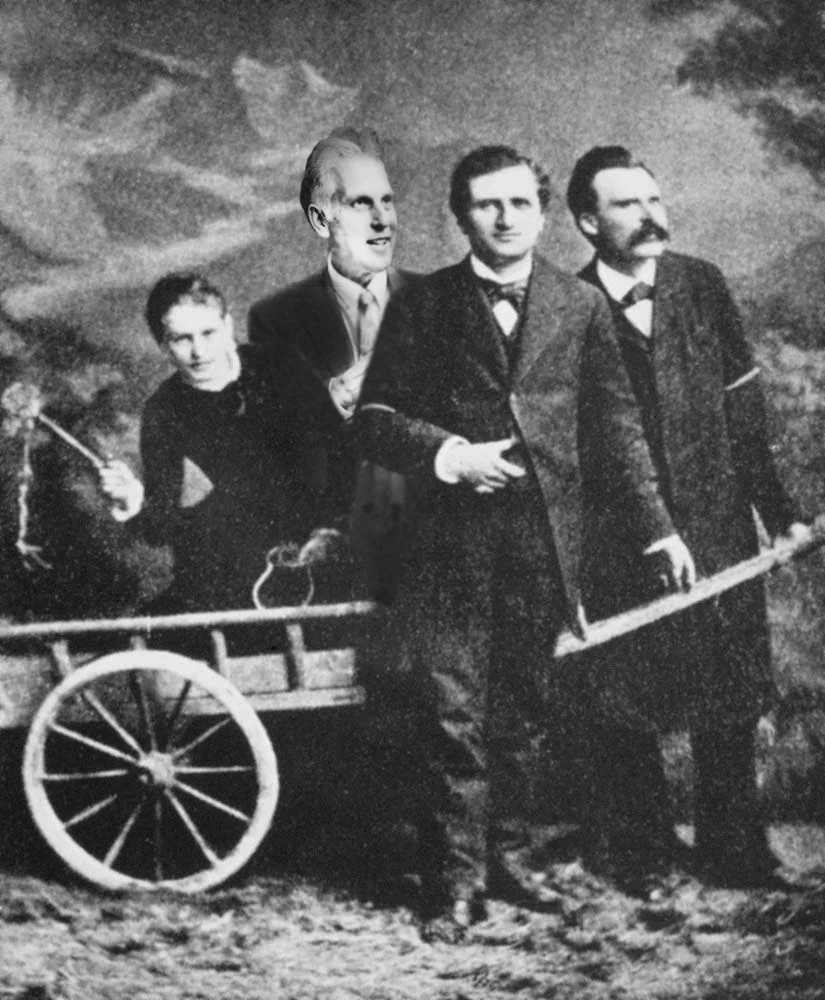
About the Author
Richard Marshall is still biding his time.